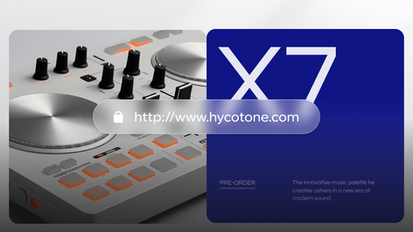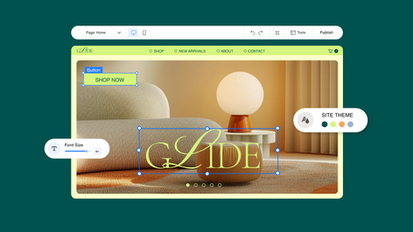A Beginner’s Guide to Best Shopify AI Website Builder
Best Shopify AI Website Builder Resources
Best Shopify AI Website Builder
In today’s digital age, having a strong online presence is crucial for the success of any small business. With the majority of consumers turning to the internet to research products and services, having a website is no longer just an option – it’s a necessity. However, many small business owners may feel overwhelmed at the prospect of creating a website, especially if they lack technical skills or the budget to hire a professional web designer. That’s where website builders for small business come in.

Best Shopify AI Website Builder Checklist
Best Shopify AI Website Builder
1. Type of Website
The type of website you want to build will have a significant impact on the cost. There are different types of websites, such as informational websites, e-commerce websites, portfolio websites, and more. Each type of website has its own unique requirements and features that can influence the overall cost of development. For example, an e-commerce website with features like online payment integration and inventory management will typically cost more to develop than a simple informational website.
2. Design
The design of a website plays a crucial role in its overall success. A well-designed website not only enhances the user experience but also reflects the brand’s identity and values. The cost of website design can vary depending on the complexity of the design, the number of pages, and the level of customization required. Custom-designed websites tend to cost more than using pre-made templates, but they offer a unique and tailored design that sets you apart from competitors.
3. Development
The development phase of a website involves turning the design into a functional website. This includes coding, testing, and optimizing the website for performance. The cost of development can vary based on various factors such as the technology stack used, the number of features and functionalities, and the level of customization required. Hiring skilled developers and programmers can also impact the overall cost of website development.
4. Content Management System (CMS)
A Content Management System (CMS) is a software that enables users to manage and update the content of their website without the need for technical expertise. Popular CMS platforms like WordPress, Drupal, and Joomla offer a range of features and customization options to build and maintain a website. The cost of a CMS can vary depending on the platform chosen and any additional plugins or extensions required for specific functionalities.
5. Domain and Hosting
Every website requires a domain name (e.g., www.yourwebsite.com) and web hosting to be accessible on the internet. The cost of a domain name can range from a few dollars to hundreds of dollars annually, depending on the domain extension and availability. Web hosting services also vary in price based on factors like storage space, bandwidth, security features, and customer support. It is essential to choose a reliable hosting provider that meets your website’s needs while staying within your budget.
6. Maintenance and Updates
Once your website is live, it will require ongoing maintenance and updates to ensure optimal performance and security. Regular updates to the CMS, plugins, and other software components are essential to protect against security threats and keep the website running smoothly. The cost of maintenance can vary depending on the complexity of the website, the level of support required, and any additional services like backups and security monitoring.
7. Additional Features and Functionality
Depending on your website’s goals and objectives, you may require additional features and functionality to enhance the user experience and achieve your business goals. These features can include social media integration, SEO optimization, email marketing tools, contact forms, and more. The cost of integrating these features will vary depending on the complexity and customization required.
When it comes to choosing a website builder, cost is a major factor to consider. While some platforms can cost hundreds of dollars per month, there are also cheaper options available that provide all the essential tools needed to create a professional-looking website. In this article, we will discuss some of the cheapest website builders on the market and explore their features and pricing options.
Wix is one of the most popular and affordable website builders available today. With plans starting at just $14 per month, Wix offers a user-friendly interface and a wide range of customization options. Users can choose from hundreds of templates, add features such as e-commerce functionality and social media integration, and even create a mobile-friendly version of their site. Wix also offers a free plan that includes Wix branding on the site, making it a great option for those on a tight budget.
Another affordable website builder is Weebly, which offers plans starting at just $6 per month. Weebly is known for its easy-to-use drag-and-drop editor, which allows users to quickly create a professional-looking website without any coding knowledge. The platform also offers e-commerce functionality, SEO tools, and customizable templates. Weebly’s free plan includes Weebly branding on the site, but users can upgrade to a paid plan to remove this branding and access additional features.
Squarespace is another popular website builder that offers competitive pricing starting at $12 per month. Squarespace is known for its sleek and modern templates, which are perfect for creative professionals and artists. The platform also offers e-commerce functionality, SEO tools, and analytics to track website performance. Squarespace’s plans come with a free custom domain for the first year, making it a cost-effective option for those looking to establish a professional online presence.
WordPress is a versatile website builder that offers a free plan, making it one of the most affordable options available. Users can choose from thousands of free and premium themes, add plugins for additional functionality, and customize their site to suit their needs. WordPress is ideal for bloggers, small businesses, and e-commerce websites, as it offers a wide range of features and customization options. While WordPress does require users to purchase a domain and hosting separately, the platform itself is free to use.
When choosing a website builder, it’s important to consider your budget, as well as the features and functionality you need for your site. While some platforms may offer cheaper plans, they may lack certain features that are essential for your website. Before making a decision, be sure to compare different website builders and their pricing options to find the best fit for your needs.

Best Shopify AI Website Builder Best Practices
Best Shopify AI Website Builder
In conclusion, the cost of building a website can vary significantly depending on various factors such as the type of website, design, development, CMS, domain and hosting, maintenance, and additional features. It is essential to carefully consider your requirements and budget constraints to ensure that you get the best value for your investment. Working with experienced professionals and getting multiple quotes can help you determine the cost of building a website that aligns with your goals and objectives. Remember that building a website is an investment in your online presence and can have a significant impact on your brand’s success in the digital landscape.

